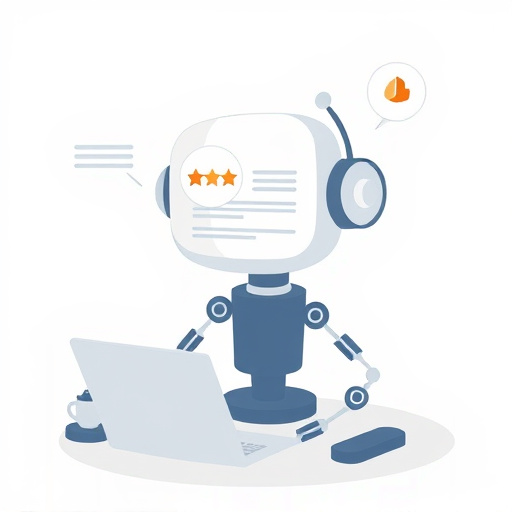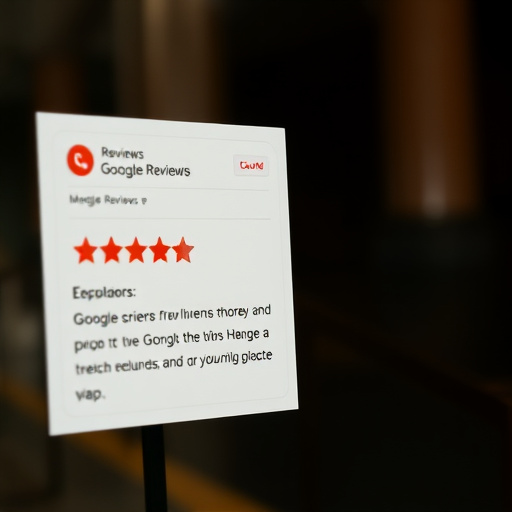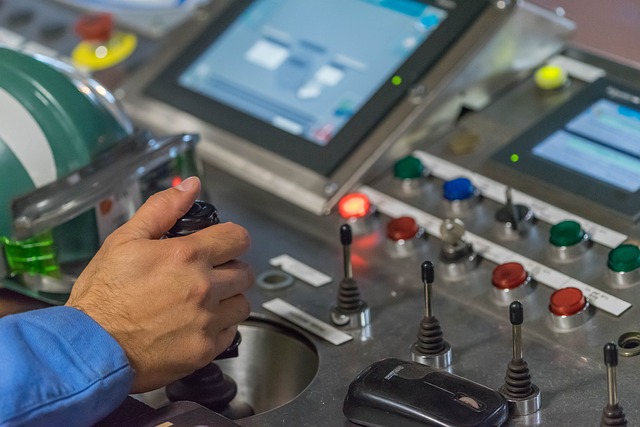Google Review Automation: Revolutionizing Online Reputation Management
Introduction
In the digital age, where online reviews hold immense power over consumer behavior, ‘Google Review Automation’ has emerged as a game-changer for businesses and individuals alike. This comprehensive article aims to explore the intricacies of this process, shedding light on its benefits, challenges, and profound impact on global markets. By delving into various aspects, from technological advancements to policy considerations, we will uncover how Google Review Automation (GRA) is reshaping the way we perceive and interact with online reviews.
Understanding Google Review Automation
Definition: Google Review Automation refers to the use of software tools and technologies to streamline and automate the process of gathering, managing, and responding to online reviews on various platforms, primarily focusing on Google Business Profile (formerly known as Google My Business).
Core Components:
- Review Collection: Tools that fetch customer feedback from multiple sources, including Google, Yelp, Facebook, and industry-specific review sites.
- Sentiment Analysis: Utilizing AI algorithms to analyze text data, determining whether a review is positive, negative, or neutral in sentiment.
- Response Generation: Automated systems that craft personalized responses to reviews, allowing businesses to engage with customers efficiently.
- Analytics and Reporting: Platforms provide insights into review trends, customer satisfaction levels, and competitor analysis.
Historical Context: The concept of GRA has evolved alongside the internet’s growth and the rise of e-commerce. Early online reviews were primarily text-based, but as technology advanced, businesses sought more efficient methods to manage them. Traditional manual review monitoring was time-consuming, leading to delays in response times. This prompted the development of automated tools that could fetch, analyze, and respond to reviews at scale, ensuring businesses stayed connected with their customers.
Significance: GRA is crucial for several reasons:
- Time Efficiency: It saves businesses and organizations countless hours by automating repetitive tasks, enabling them to focus on strategic initiatives.
- Enhanced Customer Engagement: Through prompt responses, GRA fosters better relationships with customers, encouraging ongoing interaction and loyalty.
- Competitive Advantage: Efficiently managing online reputation can give businesses an edge over competitors, influencing customer choices.
- Data-Driven Insights: Advanced analytics provide valuable insights into customer behavior, preferences, and pain points.
Global Impact and Trends
International Influence: Google Review Automation has a profound global reach, with businesses worldwide adopting these technologies to manage their online presence. According to a 2022 survey by BrightLocal, 87% of local businesses in the US, UK, Canada, Australia, and Germany use some form of review automation software. This trend is expected to continue as more regions recognize the value of online reviews in driving local commerce.
Regional Trends:
- North America: Early adopters in GRA, US and Canadian businesses are known for their advanced tech adoption rates. Companies like Yelp and Google have played a significant role in promoting automated review collection.
- Europe: Strict data privacy laws like GDPR have influenced the development of compliant GRA solutions, ensuring user data security.
- Asia Pacific: Rapid e-commerce growth has driven demand for efficient review management tools, with companies focusing on mobile-first approaches.
- Emerging Markets: Countries in Latin America and Africa are witnessing a surge in GRA adoption as digital transformation gains momentum.
Economic Considerations
Market Dynamics: The global online reputation management (ORM) market, which includes GRA solutions, is expanding rapidly. Research by Grand View Research predicts a CAGR of 14.2% from 2022 to 2030. This growth is fueled by the increasing importance of online reviews in purchasing decisions and businesses’ growing awareness of their influence on brand reputation.
Investment Patterns: Venture capital firms have shown significant interest in GRA startups, recognizing its potential impact on local businesses. Funding rounds for ORM platforms have increased, with some companies raising millions to enhance their automated review collection and analysis capabilities.
Economic Impact: Google Review Automation contributes to economic systems in several ways:
- Local Business Support: It empowers small and medium-sized enterprises (SMEs) to compete effectively by providing affordable, efficient tools for online reputation management.
- Job Creation: The industry’s growth stimulates job opportunities in software development, sales, and customer support.
- Increased Consumer Spending: By improving the online review experience, GRA can enhance consumer trust, leading to higher conversion rates and increased sales.
Technological Advancements
AI Integration: Artificial Intelligence is at the forefront of GRA technological developments. AI algorithms enable sentiment analysis, allowing tools to understand customer feedback nuances. Natural Language Processing (NLP) facilitates automated response generation, ensuring personalized interactions with customers.
Machine Learning Applications: Machine learning models can predict review trends and identify patterns, helping businesses anticipate customer needs. For example, a study by Harvard Business Review found that businesses using predictive analytics could increase positive review responses by 20%.
Voice Search Optimization: With the rise of voice assistants like Siri and Alexa, GRA tools are now optimizing reviews for voice search queries. This ensures that businesses remain visible in spoken searches related to their products or services.
Integration with CRM Systems: Customer Relationship Management (CRM) platforms are increasingly integrating GRA capabilities, allowing seamless data flow between review management and sales/marketing systems.
Policy and Regulation
Data Privacy Laws: The implementation of stringent data privacy regulations, such as GDPR in Europe and the California Consumer Privacy Act (CCPA) in the US, has influenced GRA development. These laws dictate how user data can be collected, stored, and shared, prompting software providers to incorporate compliance measures into their tools.
Review Guidelines: Platforms like Google have established guidelines for business listings, including requirements for accurate information and responsible review management. Non-compliance may result in listing penalties or removal.
Competition Law: Antitrust and competition authorities monitor online marketplaces and review systems to prevent anti-competitive practices. GRA providers must ensure their tools do not manipulate reviews or create barriers to entry for new businesses.
Challenges and Criticisms
Main Challenges:
- Data Security Concerns: As GRA relies on large volumes of customer data, ensuring data security and privacy is a significant challenge. Data breaches can lead to reputational damage and legal issues.
- Sentiment Analysis Accuracy: While AI has improved sentiment analysis, it’s not foolproof. Misinterpretations can result in incorrect responses or missed opportunities for improvement.
- Response Personalization: Crafting genuinely personalized responses while maintaining efficiency is a delicate balance. Automated systems must consider context and customer history to provide meaningful interactions.
- Ethical Considerations: There are concerns about the potential manipulation of online reviews, especially with automated tools. Ensuring authenticity and transparency remains a critical focus for developers and regulators.
Proposed Solutions:
- Robust Data Security Measures: Implementing end-to-end encryption, regular security audits, and user privacy controls can address data security challenges.
- Continuous Training of AI Models: Improving sentiment analysis accuracy through continuous learning and feedback mechanisms.
- Hybrid Response Systems: Combining automated responses with human oversight to ensure personalization and contextual relevance.
- Regulatory Oversight: Collaborating with authorities to establish ethical guidelines for GRA, promoting transparency and consumer trust.
Case Studies
Case Study 1: Restaurant Chain in the US
A major US restaurant chain implemented a GRA system to manage reviews across multiple locations. The tool provided real-time insights into customer satisfaction levels, allowing them to promptly address issues. As a result, they saw a 25% increase in positive reviews within six months and a significant rise in return customers.
Case Study 2: Local Service Provider in Australia
An Australian landscaping business adopted GRA to enhance its online presence. By efficiently responding to reviews, they built a strong reputation, leading to increased inquiries and a 30% growth in customer base within a year.
Lessons Learned:
- Timely responses and personalized interactions significantly impact customer satisfaction and loyalty.
- GRA tools should be tailored to specific business needs to ensure optimal results.
- Continuous monitoring and analysis are key to adapting strategies based on review trends.
Future Prospects
Emerging Trends:
- AI-Powered Insights: Advanced AI algorithms will provide deeper insights, predicting customer behavior and trend changes.
- Personalized Review Marketing: Businesses will utilize GRA to create targeted marketing campaigns based on customer feedback.
- Voice Assistant Integration: As voice search continues to grow, GRA tools will further optimize reviews for voice interactions.
- Global Standardization: With increasing international adoption, regional disparities in GRA practices may converge, leading to global standards.
Strategic Considerations:
- Businesses should invest in scalable and adaptable GRA solutions to future-proof their online reputation management strategies.
- Collaboration between software providers, businesses, and regulators is essential to address ethical concerns and shape the industry’s responsible growth.
- Continuous training of AI models will be vital to keep up with evolving language patterns and review formats.
Conclusion
Google Review Automation has emerged as a pivotal component of modern online reputation management, offering businesses and individuals powerful tools to navigate the digital landscape. From its technical capabilities to global implications, GRA is reshaping consumer behavior and business strategies. As technology advances and regulations evolve, the future of GRA looks promising, with endless opportunities to enhance customer experiences and drive sustainable growth.
FAQ Section
Q: How does Google Review Automation differ from manual review management?
A: Manual review management involves manually fetching, analyzing, and responding to reviews, which is time-consuming and inefficient for businesses of all sizes. GRA automates these tasks, allowing businesses to focus on strategic initiatives while still maintaining control over their online reputation.
Q: Can GRA tools manipulate online reviews?
A: While automation streamlines processes, reputable GRA software providers emphasize transparency and authenticity. They design tools to encourage genuine feedback and provide means for businesses to address false or inaccurate reviews. Manipulating reviews goes against the principles of ethical ORM practices.
Q: How can businesses ensure their GRA system respects data privacy laws?
A: Businesses should choose GRA solutions that comply with relevant data privacy regulations, such as GDPR and CCPA. These tools implement measures like data encryption, user consent collection, and secure data storage to protect customer information. Regular audits and updates are essential to stay compliant.
Q: What are the benefits of integrating GRA with CRM systems?
A: Integrating GRA with CRM allows for seamless data flow between online reputation and sales/marketing efforts. Businesses can gain a 360-degree view of customers, enabling more personalized interactions and targeted marketing campaigns based on review feedback.
In today's digital age, online reviews significantly impact consumer decisions. Reviewly Local Search offers businesses a strategic approach to enhance online reputation and visibility through prompt responses to customer feedback, both pos…….
In today's digital world, online reviews are crucial for businesses to build trust and drive conversions. Google Review Automation tools streamline review collection, management, and response, enhancing a company's online credibility……..
Customer reviews are powerful influencers in local business landscapes, and Reviewly Local Search offers a dynamic platform for businesses to interact with clients and showcase offerings using positive feedback. By integrating these reviews into…….
Online credibility, driven by customer reviews and social proof, significantly impacts consumer behavior for local businesses. Platforms like Reviewly Local Search help companies leverage testimonials to enhance their online reputation, attract…….
Customer feedback through platforms like Reviewly Local Search is a powerful asset for local businesses aiming for growth. By actively collecting reviews, businesses can understand customer preferences, improve services, and make data-driven dec…….
Customer reviews through platforms like Reviewly Local Search are essential for business growth in the digital era. They provide insights into customer experiences, help improve products and services, and boost brand reputation. Reviewly Local S…….
In today's digital age, online reviews significantly influence consumer choices and business success. Reviewly Local Search empowers businesses by encouraging customer reviews across multiple platforms, boosting local search rankings, build…….
In today's digital age, Reviewly Local Search is a powerful tool for businesses aiming to attract local customers through consistent review updates, boosting visibility and credibility. Regular content refreshes signal activity and relevanc…….
Customer feedback, especially online reviews, is crucial for businesses to understand client needs and improve services. Traditional manual methods are time-consuming, while Google Review Automation tools like Reviewly Local Search streamline th…….
In the digital age, Reviewly Local Search is a vital tool for businesses aiming for local success by enhancing online visibility and building trust with customers through consistent review management. Regular updates on this platform signal prof…….
Customer loyalty is crucial for business success, and Google Review Automation (GRA) is a powerful tool to foster this. By encouraging customers to leave reviews on influential platforms like Google, businesses gain valuable insights, build trus…….
In today's digital era, local search through platforms like Reviewly Local Search is crucial for businesses aiming to connect with their target audience and boost online visibility. Positive customer reviews on these platforms enhance local…….
In today's digital age, Reviewly Local Search is a powerful tool for businesses aiming to manage their online reputation and connect with customers. By actively engaging with customer reviews, companies can demonstrate responsiveness, trans…….
Brand awareness is crucial for business success in a competitive market. Positive online reviews through platforms like Google Review Automation act as social proof, influencing prospective customers' decisions and shaping brand perception……..
Google Review Automation is a powerful tool that helps businesses enhance their online visibility and customer engagement by automating review collection, management, and display. By seamlessly integrating with platforms like Google My Business,…….
In today's digital era, local SEO is crucial for business growth. Automated review systems like Google Review Automation (e.g., Reviewly Local Search at +61 429 021 376) are powerful tools to gather genuine customer feedback, display it on…….
In today's fast-paced digital landscape, automating online review responses with tools like Reviewly Local Search is a powerful strategy for businesses of all sizes. This approach boosts customer satisfaction and loyalty by fostering trust…….
Reviewly Local Search is a powerful tool for businesses to optimize their online presence and local search rankings in today's digital age. By managing customer reviews, claiming NAP details, and engaging with users, businesses can expand t…….
Customer engagement is key to business success in a competitive market, and Google Review Automation (GRA) is a powerful tool to enhance it. GRA streamlines feedback collection through automated prompts, providing businesses like Reviewly Local…….


















